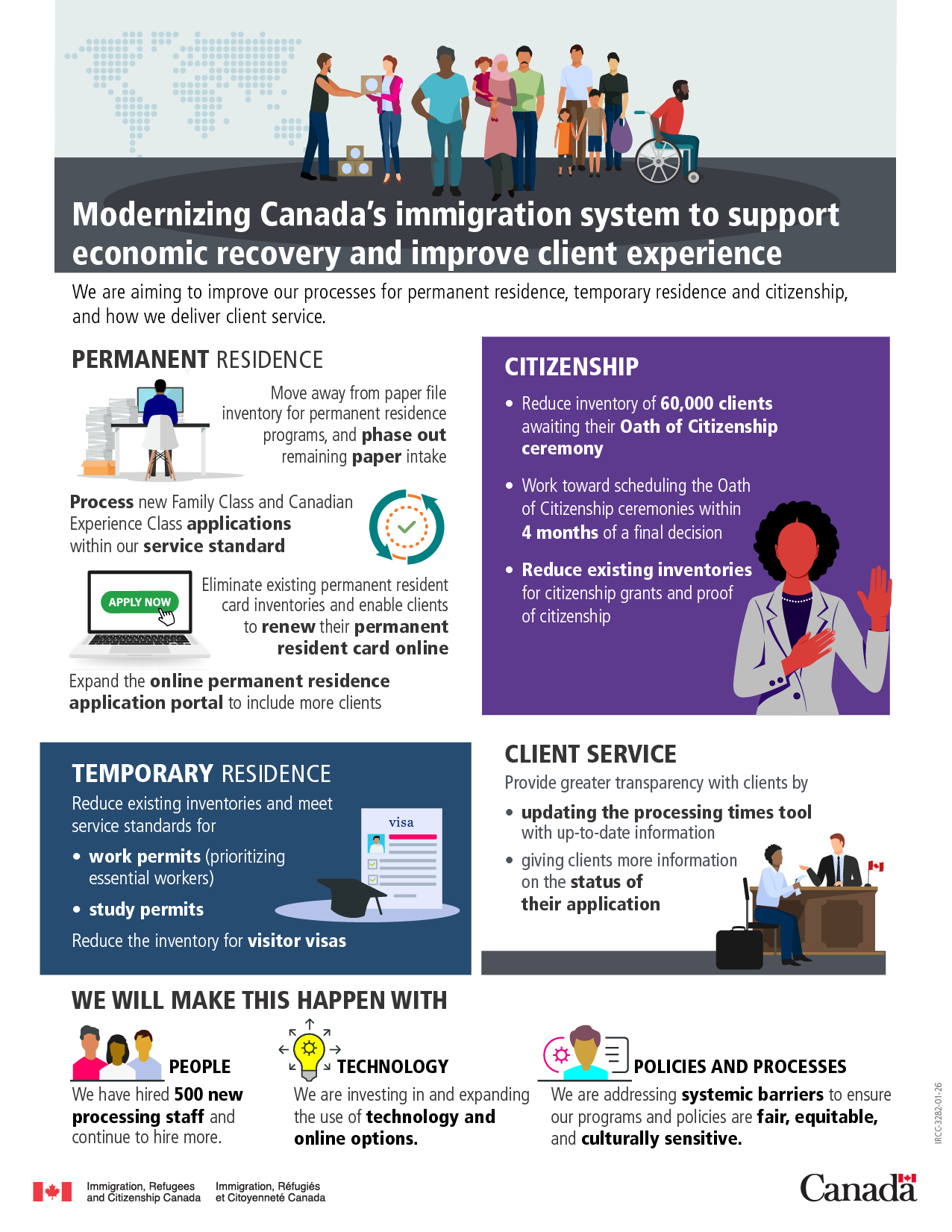Prior to the pandemic, IRCC was undergoing transformation of its operations, leveraging technology to develop tools and new practices to make our immigration system more agile, efficient and client-focused.
COVID-19 has accelerated the need for transformation, spurring the department to leap into new areas. IRCC has also been moving toward a more integrated, modernized working environment that will help speed up application processing around the world.
To deliver on this commitment, the Government of Canada proposed $85 million in new funding to reduce application inventories and welcome people who can help address Canada’s labour shortages and support recovery.

Temporary residence
IRCC is also working to reduce temporary residence applications in the inventory, including students and workers, with the aim of meeting service standards.
Following a record year for study permits in 2019, IRCC increased our output by 32% during the pandemic by finalizing almost 560,000 study permit applications.
IRCC will continue to prioritize study and work permit processing, and have started to handle new visitor visa applications, now that vaccinated visitors can enter Canada.
Citizenship
IRCC has expanded the use of virtual citizenship ceremonies, and is working to increase the number of candidates participating in ceremonies. Since April 1, 2020, over 170,000 applicants have become citizens through video oath ceremonies. The department is hosting 350 virtual ceremonies a month and inviting approximately 3,500 to 5,000 applicants weekly to deliver the Oath virtually.
On November 26, 2020, we became one of the first countries in the world to offer citizenship testing online with the launch of a new platform. Since then, IRCC has administered approximately 247,000 citizenship tests and is now able to invite approximately 5,000 applicants per week to complete the test, exceeding pre-COVID-19 testing rates.
Source: IRCC

